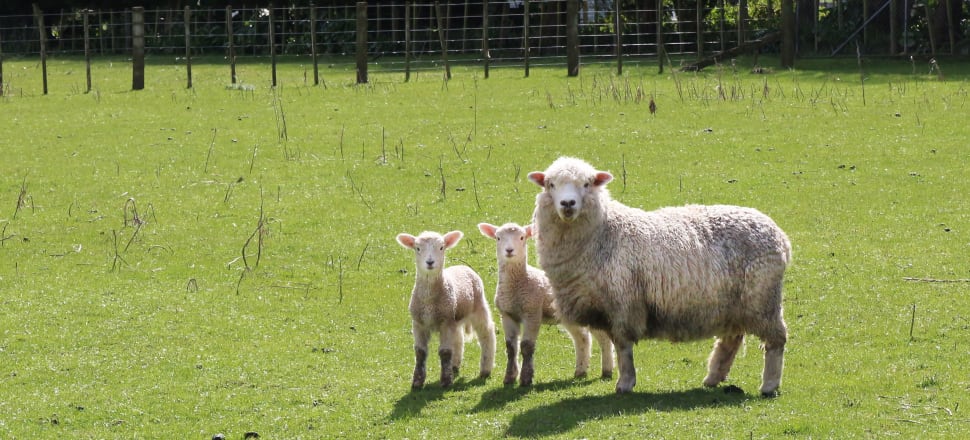
The post-He Waka Eke Noa farming consensus on climate action is starting to look a lot like the opposition that pre-dated the pricing agreement, Marc Daalder reports
Analysis: A renewed alliance of primary sector lobby groups to oppose the Government's methane levy hearkens back to the pre-He Waka Eke Noa consensus against reducing farm emissions.
Dairy NZ, Federated Farmers and Beef and Lamb announced last week they had "met to discuss emissions pricing and to reaffirm common position between the three organisations".
That common position is rooted in nine principles they intend to take to the Government, including advocating for the He Waka Eke Noa proposal to be advanced without any changes by ministers or officials and for the country's 2030 and 2050 methane targets to be drastically changed.
Most of the key elements of He Waka Eke Noa have been retained by the Government in its consultation document. Methane and nitrous oxide emissions will still be priced at the farm level, allowing the greenest farms to pay less and requiring the dirtier ones to pay more. Farmers will also be offered generous incentives to reduce emissions, equivalent to at least 10 times the price they face if they don't cut pollution.
Government modelling, like that of He Waka Eke Noa, found the sector earned less revenue in 2030 under either scheme than if it didn't face an emissions price. Some production would also be lost to overseas.
However, experts say the economic impacts of cutting emissions may well be overhyped.
Warren Morritt, managing director of Headlands Consultancy, told The Country farmers could overachieve the current emissions targets without reducing production or losing money.
"Our modelling research clearly shows that the dairy sector can build a system that achieves and exceeds the 2030 climate change and greenhouse gas targets while improving animal welfare and ensuring we don’t compromise on profitability and total production," he said.
And a Newsroom analysis of the cost of the levy, based in Dairy NZ- and Beef and Lamb-commissioned studies on the low emissions from New Zealand agriculture, also indicate the impacts would be minimal.
If set at the highest level proposed by the Government, the methane and nitrous oxide levies would collectively increase the price of New Zealand beef by less than $0.14 per kilogram by 2030. The price of lamb would rise by less than $0.09 per kilo.
For comparison, beef and lamb prices rose $0.38 and $0.14 per kilo, respectively, in September alone.
Dairy would face even less of a price - around half a cent per litre of milk, or less than $0.06 per kilo of milk solids.
None of this takes into account the payouts of those generous incentives, nor the money farmers will receive for carbon absorption by some of their existing vegetation.
The impacts of the levy are tiny, almost negligible compared to the impact of eight years of economic growth farms will see before they finally settle into place.
In reality, the Government's decision to tinker with the He Waka Eke Noa proposal is just a convenient excuse for farming groups to implode the fragile consensus established in 2019, now that it looks increasingly possible that Labour and the Greens won't be in power to oversee the implementation of the pricing scheme in 2025.
Federated Farmers was already wary of the scheme created by the sector, with president Andrew Hoggard freely airing his doubts about the deal when it was announced.
The arrival of Groundswell in the wake of the 2019 deal between the sector and the Government also has the traditional farming groups wary of looking too cozy in Wellington.
Sure, Dairy NZ and Beef and Lamb and even the Feds say they're committed to reducing emissions. But polling conducted by Manaaki Whenua earlier this year showed farmers themselves are evenly split on the need to do so.
When asked what would be the three most important elements of an emissions pricing mechanism, only a third picked "helps drive emissions reductions" as one of their choices.
In that environment, the big farming lobby groups may feel no choice but to return to the pre-2019 approach of blind opposition to climate action.
They've already reopened an old wound with one of their nine principles: "The current methane targets are wrong and need to be reviewed. Targets should be science-based, not political, and look to prevent additional warming."
According to the Intergovernmental Panel on Climate Change, methane emissions need only decline 0.3 percent a year to halt any additional contribution to warming. That would more than halve the ambition of our existing methane targets, from a 10 percent reduction in 2030 to a 3.9 percent reduction and a 24 to 47 percent reduction in 2050 to a 9.9 percent cut.
It would also "lock in" the monumental warming effect of New Zealand's past and present methane emissions, equivalent to more than 60 percent of the warming the country is responsible for to-date.
While Labour is unlikely to budge on the current methane targets, a National government could be more willing. It was the last National government that indefinitely postponed agriculture's entry into the Emissions Trading Scheme. And National MP Stuart Smith cited the 0.3 percent figure in two press releases last year.
Either way, the sector is done playing ball with the Government. From the perspective of everyday farmers - and at least some of the big lobby groups - He Waka Eke Noa was a failed experiment in partnership that isn't to be repeated.
When it launched, 11 agriculture groups said in a joint statement that He Waka Eke Noa "might provide a blueprint for the way we work together to solve environmental challenges in the future".
Now, it would be hard to find many hoping for a repeat of this saga.







